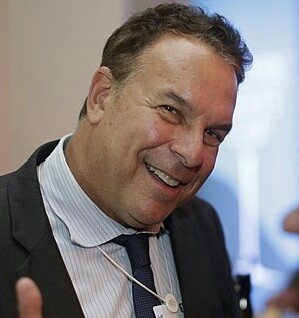A Quote by Thomas Frank
In the subprime mortgage industry, bankers handed out iffy loans like candy at a parade because such loans meant revenue and, hence, bonuses for executives in the here-and-now.
Related Quotes
Both HUD and the Department of Justice began bringing lawsuits against mortgage bankers when a higher percentage of minority applicants than white applicants were turned down for mortgage loans. A substantial majority of both black and white mortgage loan applicants had their loans approved but a statistical difference was enough to get a bank sued.
A consolidation makes sense only if you can lower your overall interest rate. Many people consolidate by taking out a home equity line loan or home equity line of credit (HELOC), refinancing a mortgage, or taking out a personal loan. They then use this cheaper debt to pay off more expensive debt, most frequently credit card loans, but also auto loans, private student loans, or other debt.
When you say "bank," a bank is a building, a set of computers and chairs and things. The bankers are the people running these banks. They're the chief officers, and they push the loans because they don't care if they go bad. For one thing, they may package these bad loans and sell them off to gullible institutional investors.
If bankers can push the loans and make more profits for the bank, they get paid higher bonuses. They often also get stock options. If the bank goes under, they get to keep all of these salaries and options - and the government will bail out the bank. These guys will take their money and run, which is pretty much what they're doing now.
Too-easy credit and millions of bad loans made during the U.S. housing bubble paved the way for the financial calamity and Great Recession that followed. Today, by contrast, credit is too tight. Mortgage loans are particularly hard to get, creating a problem for the housing market and the broader economy.































